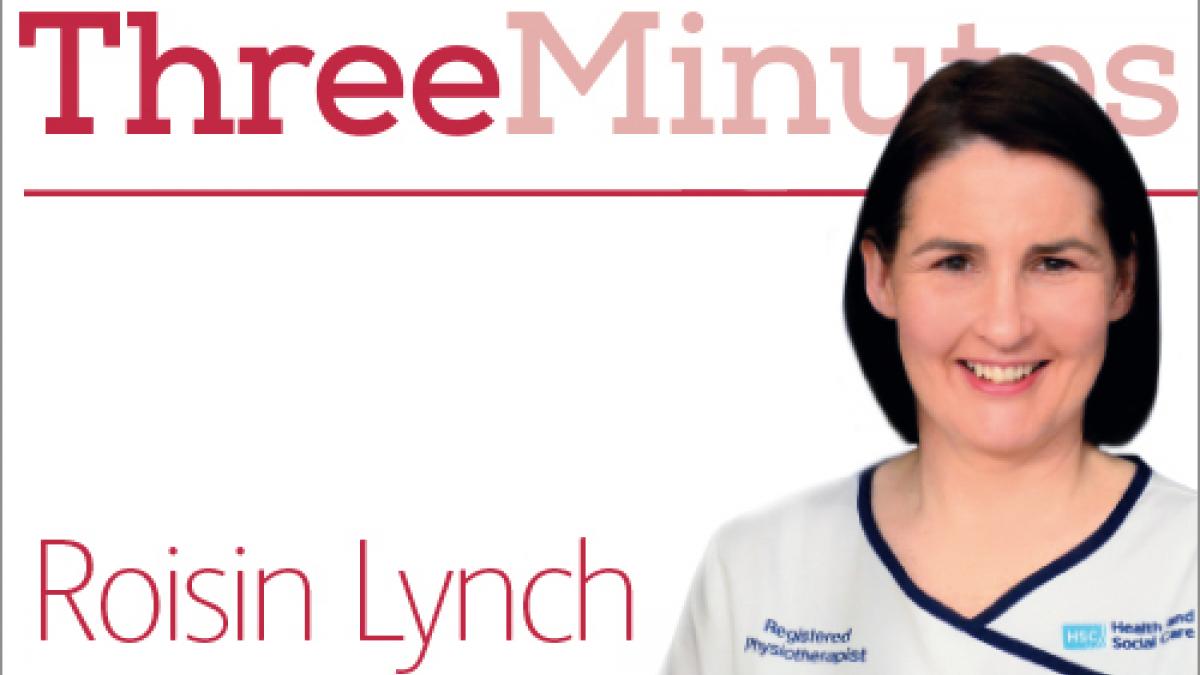Roisin Lynch has led the implementation of first contact practitioners at Craigavon Area Hospital’s emergency department.

Taking a lead in emergency care
What is the role of the first contact physiotherapist in the emergency department?
They can see patients with musculoskeletal injuries like ligament sprains, muscle strains or other soft tissue pain or damage without referral from a doctor. They are directly triaged to the team when they arrive at the emergency department.
How did this role develop?
The physiotherapy service in the emergency department of Craigavon Area Hospital – part of Southern Health and Social Care Trust – was initially set up as a small resource. The physiotherapist worked in a review clinic, following direct referrals from the emergency department team of doctors. In 2014, the Regulation and Quality Improvement Authority recommended that physiotherapists were recruited as first contact practitioners to improve patient flows within the minor injuries stream. I was delighted to be given the opportunity to roll it out, since we had an experienced team of advanced clinical specialist physiotherapists who were well placed to take on the extended role at the frontline of service provision.
How was a seven-day rota introduced?
In February 2016, the trust became the first in Northern Ireland to implement its seven day service with physiotherapists as first point of contact. It followed detailed consultations with the physiotherapy head of service and the human resource department. It was agreed that trust-wide a team of band 7 advanced clinical specialist physiotherapists would provide cover on a rota basis. Some staff embraced this new challenge from the beginning, but others found it more difficult to adapt to.
What training has been needed?
Staff needed to be involved at all stages of the process and trained and mentored to enable them to be both confident and competent in their extended role. There were many stakeholders involved in training staff, including the radiology service who helped me develop a scheme of work that enabled the first contact practitioners to refer for investigations.
Setting up the service within an already established team required a great deal of collaboration. There was some reluctance to the physiotherapist managing patients in the minor injuries stream. We developed and shared access criteria for the service and worked with the triage staff to ensure that the correct patients were being triaged directly to the physio. After one month trialing a five-day service this was rolled out over seven days. I established a rota to cover the weekends and bank holidays which was provided by a team of 23 band 7 physiotherapy staff (equating to 17 whole time equivalent staff). This rota was made available to all staff four months in advance.
What has been the impact?
Last June I presented on the value of physiotherapy delivering first contact care to the Northern Ireland Confederation for Health and Social Care conference. I showed the benefit of timely assessment, diagnosis and treatment planning by physiotherapists as first contact care providers.
How has the patient journey changed?
Emergency departments are under severe pressure. Allied health professionals have a significant contribution to make in supporting early intervention and direct treatments, as the minister for health for Northern Ireland has recently proposed. Incorporating physiotherapy within the skill mix of this team is a step in the right direction.
Any other firsts?
The StarT Back approach to managing back pain. I completed the training at Keele University and as a result I now deliver three levels of training of the stratified care model and roll out this programme to all staff and is an ongoing process. This was a very different approach, a change of practice, a change of culture. It is evidence-based and very concrete. Now the biopsychosocial model has become embedded in our practice of all of our patients. fl
- Roisin Lynch is physiotherapy clinical lead, musculoskeletal outpatients, Southern Health and Social Care Trust (SHSCT)
Author
Roisin Lynch physiotherapy clinical lead, musculoskeletal outpatients, Southern Health and Social Care Trust (SHSCT)Number of subscribers: 1




































